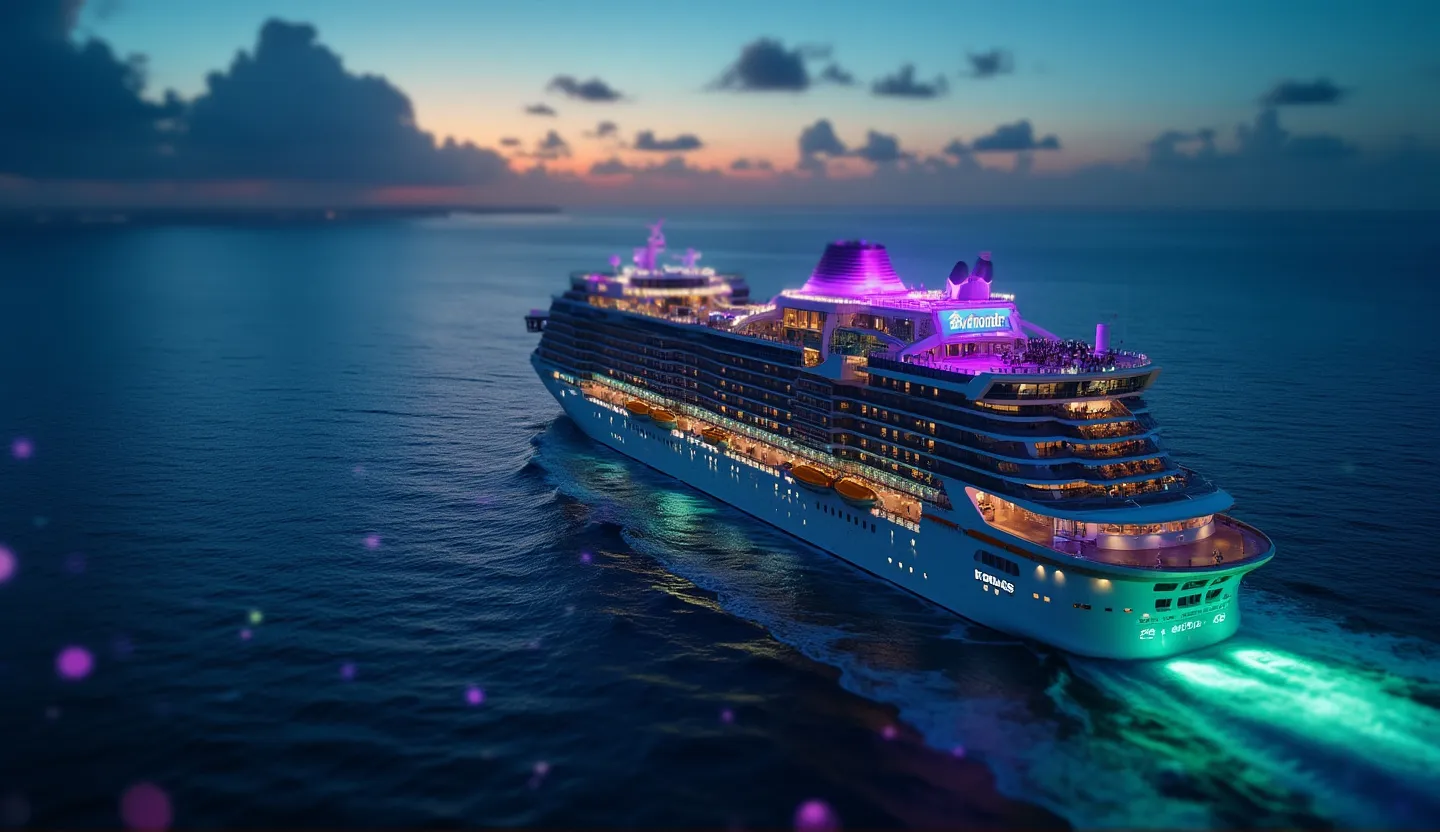Dissecting Royal Caribbean's Market Pulse as Travel & Leisure Faces a Reset
Royal Caribbean Group (RCL) has long been a bellwether in the travel and leisure sector, celebrated for its resilience and market-leading cruise innovations. Yet, as of the latest trading session, shares are down 1.79% to $251, underperforming the broader market and drawing attention from investors seeking outliers within the sector. The company, emerging from a multi-year post-pandemic boom, now navigates a new set of challenges amid shifting macroeconomic currents and evolving consumer preferences.
Recent news has focused on both the sector's growth potential and valuation concerns. Market commentators such as Ivan Feinseth of Schwab Network see long-term opportunity in cruise lines, highlighting the sector's modest 2% share of the $2 trillion annual travel industry and suggesting that "the industry makes up 2% of the $2 trillion yearly travel profits, which... [is] growing long-term." Meanwhile, value-oriented research from Zacks and The Motley Fool asks whether Royal Caribbean's recent surge has left it overextended or if the stock still represents an attractive entry point for investors.
Key Takeaways
Stock Downturn: Royal Caribbean shares are off 1.79% today, trading at $251 on above-average volume, trailing both the S&P 500 and key sector peers.
Valuation Debate: Value-focused analysts remain split on whether current levels present a buying opportunity or reflect peak optimism.
Sector Sentiment: Recent expert commentary points to long-term secular tailwinds but acknowledges near-term volatility and normalization after outsized post-pandemic gains.
Recent News: Schwab Network and Zacks highlight both the growth runway and increased scrutiny on margins and demand.
Assessing Performance in a Choppy Market
Volume and Price Action: A Relative Weakness
Royal Caribbean's intraday drop of nearly 2% stands out in a sector that has recently enjoyed strong tailwinds. The trading volume of 20,075 shares—early in the session—signals heightened investor attention. With a previous close of $254.03, the current print at $251 retraces a portion of the company's robust year-to-date rally, which had seen the stock advance over 35% from its 2024 lows. This correction may indicate profit-taking or a sector-wide repricing as investors reassess travel demand in the face of macroeconomic uncertainty.
Historical Trend Snapshot
1-Year Performance: RCL has outperformed many leisure peers, surging from sub-$150 lows to recent highs above $250, as pent-up travel demand met limited cruise capacity.
Volatility: The stock has experienced above-average swings, with sharp rallies following earnings beats and pullbacks on macro headlines.
Valuation in Focus: Analyst and Market Sentiment
The debate over Royal Caribbean's valuation is intensifying. Zacks recently spotlighted RCL as a "strong value stock" based on its Style Scores, yet The Motley Fool raised the question of whether the stock's surge may have overshot intrinsic value as normalization sets in.
"Wondering how to pick strong, market-beating stocks for your investment portfolio? Look no further than the Zacks Style Scores," Zacks Investment Research.
Meanwhile, Schwab Network offered a broader perspective:
"Cruise lines are a buy opportunity... Expect smooth sailing for growth. The industry makes up 2% of the $2 trillion yearly travel profits, which I see growing long-term."
Yet, as the post-pandemic travel surge cools, analysts are divided. Some point to sustained demand for unique experiences and global expansion, while others caution that consumer spending could moderate as economic uncertainty persists.
Sector Trends and Macro Backdrop
Post-Pandemic Normalization
The cruise sector has enjoyed a remarkable recovery, but recent market softness suggests that the "easy money" phase may be over. Factors weighing on the sector include:
Inflation and Interest Rates: Higher costs for fuel, labor, and financing are pressuring margins.
Shifting Demand: While bookings remain strong, pricing power is being tested as competition heats up and consumers become more budget-conscious.
Global Events: Geopolitical risks and supply chain disruptions continue to cast uncertainty on international travel.
Travel & Leisure: Cyclical or Secular?
Royal Caribbean's leadership position and robust booking trends have set a high bar for the cruise industry. However, the normalization of travel patterns may mean slower, albeit steadier, growth going forward. As The Motley Fool notes:
"The stock has soared since my previous buy recommendation."
The implication is clear: investors must now weigh future growth expectations against a valuation that reflects near-perfect execution.
Quantitative Snapshot
Metric | 5/20/2025 | Recent Trend |
|---|---|---|
Price | $251 | ↓ from $254 |
Percent Change | -1.79% | Down |
Volume (early session) | 20,075 | Elevated |
2024 YTD Performance | +35% | Outperforming |
Market Context: Key News and Commentary
Royal Caribbean is at the intersection of optimism and caution. Recent commentary from Schwab Network and Zacks points to continued secular growth, but the market's pullback today suggests investors are recalibrating their expectations. The company's ability to maintain pricing power, manage costs, and deliver innovative experiences will be critical in sustaining its outperformance.
Feinseth: Cruise Lines "Buy Opportunity," Expect Smooth Sailing for Growth — Schwab Network
Here's Why Royal Caribbean (RCL) is a Strong Value Stock — Zacks Investment Research
Is Royal Caribbean Cruise Line Stock Still a Buy? — The Motley Fool
Conclusion: Navigating the Next Leg for Royal Caribbean Investors
Royal Caribbean's current session downturn—against a backdrop of robust long-term performance—highlights the critical juncture facing the travel and leisure sector. While secular growth drivers remain intact, today's action underscores the market's sensitivity to valuation and macro signals.
The key questions are:
Is this a healthy correction or a sign of deeper normalization in consumer travel demand?
How sustainable are Royal Caribbean's premium pricing and market share gains?
Can cost and margin discipline offset macro pressures if the economic environment weakens?
In summary, Royal Caribbean remains a sector heavyweight, but its near-term trajectory may hinge on delivering consistent execution in a maturing market. Investors should closely monitor evolving demand trends, cost controls, and management's ability to navigate the increasingly competitive travel landscape.

.svg)
.svg)
.svg)
.svg)

.svg)

.svg)
















